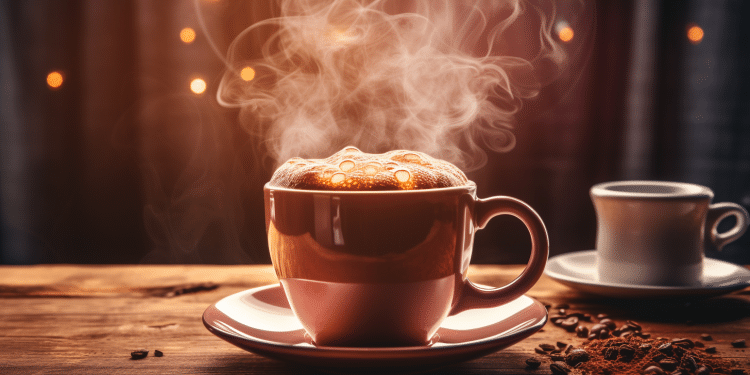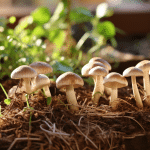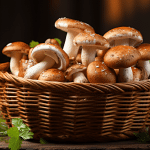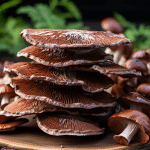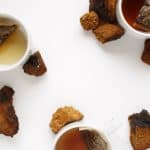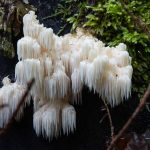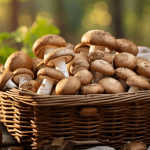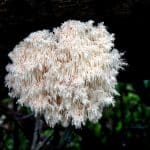Coffee and energy drinks are wonderful at increasing cognitive functions and stimulating the central nervous system – until they are not. High blood pressure, elevated glucose levels, and increased diabetes risk, as well as nervousness, insomnia, and anxiety. Does any of that sound familiar?
While the coffee mug may be able to lift you up in the morning, or get you through an afternoon slump, it is not the only natural substance that has uplifting effects. These natural stimulants can put your mind and body into optimum working order, while providing plenty of other superfood-status health benefits.
11 All Natural Stimulants for Energy and Focus
We are not saying that caffeine is the devil. In fact, a few of these natural stimulants do contain caffeine. However, you can have too much of a good thing.
Everyone has a story about drinking one too many cups of coffee too quickly, spiraling into a ball of depression and anxiety, lacking any cognitive function the rest of the day. What is more, not every caffeine source is healthy. A cup of coffee or espresso a day, at first or mid-afternoon, may get you through, but energy drinks are not as innocent. Even the sugar-free varieties contain higher levels of artificial sweeteners (which the science hasn’t declared to be safe at significant amounts) and far more caffeine than you get from super-strong coffee.
Many heart patients don’t know this until something happens. In other words, you might not realize that your heart is “caffeine sensitive” as a can warns, until you experience a heart attack after drinking one energy drink too many times over 24 hours. Try a few of these natural stimulants to break the reliance on caffeine, and you will also reap incredible nootropic and health benefits.
Theobromine
Coffees cognitive and energetic powers are not just due to caffeine: The alkaloid theobromine plays a critical role, too. Theobromine stimulates the central nervous system and supports healthy blood flow to brain cells, so it probably boosts cognitive function. Plus, some studies suggest theobromine may help you feel more relaxed and less anxious. You can find theobromine in powders, capsules, and cacao nibs (yum).
American Ginseng
Look at the local vitamin store for ginseng, and you will notice that there are three choices: Panax ginseng (Asian), Siberian ginseng, and American ginseng. Ginseng is a common component in Chinese medicine across the board, and each variety has their own unique benefits. Most of the herbs energy-boosting properties are due to the bioactive compounds called ginsenosides.
While Asian ginseng is useful in relieving stress and soothing the nerves, American ginseng is useful in relieving fatigue. A double-blind study found that taking 2,000 mg of American ginseng daily for eight weeks significantly and safely reduced fatigue in patients with cancer.
L-Theanine
If you are unwilling to forgo your coffee, but have trouble with jitters, consider adding l-theanine to your routine. You can find l-theanine naturally found in tea. If you have ever appreciated that peaceful, but alert, feeling you get after drinking a cup of green tea, you can thank l-theanine for it. Studies have shown that this amino acid helps your brain build long-term memories, regulating your neurotransmitters of serotonin and dopamine.
Ginkgo Biloba
While many studies suggest ginkgo biloba is best suited to improving memory in older adults, anyone can reap its benefits by making it a part of their health routine. As a staple in traditional Chinese medicine, the Ginkgo Biloba tree has been around for thousands of years – quite impressive! Ginkgo is packed with antioxidants such as flavonoids and terpenoids, which combat inflammation, boost circulation, and protect the heart.
However, it is ginkgo’s effects on memory and brain function that are the most impressive. Studies have shown this plant-based stimulant improves the memory of Alzheimers patients, decreases symptoms of depression, eases anxiety, and supports general mental health.
Yerba Mate
If giving up caffeine is not on your radar, you might think that giving yerba mate a try is worth a try. Native to Latin America, yerba mate contains all of the things that brain cells and bodies like: caffeine and theobromine. Yerba mate also has high levels of antioxidants and saponins, which provide powerful anti-inflammatory and disease-fighting health benefits. To cap things off, this underrated tea also provides seven out of nine essential amino acids. With a serving size of 85mg caffeine, there is really no reason not to try this one.
Guarana
Guarana has been given a bad name for being involved with energy drinks. We promise, guarana does not need to be an awful thing.
In moderation, guarana works like a natural, plant-based stimulant that has very few side effects. While guarana does indeed contain caffeine, it also boasts an antioxidant profile similar to green tea – with just a bit more caffeine. Studies have found that guarana in moderate doses may enhance learning abilities, cognitive functions, and memory. However, once you go overboard, you can expect to experience the same negative effects you would experience with excessive caffeine.
Cordyceps
Unlike many of the herbal stimulants on this list, there is no caffeine in cordyceps. Cordyceps is a mushroom that has incredible antioxidant profiles, beta-glucans, and essential phytonutrients that support both physical and mental energy. Studies show this unique mushroom may enhance physical performance and enhance cognitive functions, supporting healthy oxygen uptake into the blood vessels and brain cells. To cap things off, antioxidants found in the genus cordyceps fight inflammation, protect against aging, and provide anti-cancer effects.
Green Tea
Have you heard green tea is great for weight loss. No con-games here: Green tea has specific antioxidants, tannins, L-theanine, and EGCG, which may help suppress your appetite and boost your metabolism. Not only that, but the l-theanine in this natural stimulant crosses the blood-brain barrier to increase GABA and serotonin production, which may decrease anxiety. From improving your attention span, concentration, and cognitive function, to fighting inflammation, protecting yourself against cancer, and aiding in weight loss, there is really no reason to miss an afternoon cup of green tea.
Gotu Kola
Nope, not the cash tree — the cash tree is kola, a plant-based stimulant related to a family of herbs found throughout swampy areas of Asia and India. Unlike kola nut, gotu kola has absolutely zero caffeine.
Gotu kola does indeed appear to decrease symptoms of anxiety and depression pretty rapidly, as opposed to adaptogens that may take weeks to accumulate in the body. Of course, gotu kola seems to boost cognitive functions across all age groups, as well as improving memory.
Make sure to only purchase your gotu kola from manufacturers who conduct regular testing. The FDA does not actively regulate supplements, and some manufacturers might be selling gotu kola that is grown in soil that has high levels of heavy metals.
Coconut Oil
It might sound counterproductive to eat more fat if you are trying to lose weight, but studies have shown that increasing the amount of MCTs in your diet may increase weight loss. Luckily, coconut oil contains lots of medium-chain triglycerides, which your body uses as an instant energy source. Not only do they help curb appetite, they encourage your body to burn fat. These essential fatty acids are not only beneficial for weight loss. Studies have shown that the fatty acids found in coconut oil may lower the risk of seizures, as well as improving brain function.
Rhodiola Rosea
Rhodiola Rosea is a powerful adaptogen, meaning that it protects your body from both physical and mental stresses. Asian countries and the Soviet Union conducted many studies about adaptogens powers to improve cognitive functions, enhance memory, improve physical endurance, and more. As a nootropic, Rhodiola Rosea has stimulant properties, not the calming elements such as Ashwagandha. Studies have shown that rhodiola combats fatigue and decreases energy levels, defending against outside pressures.
Other Ways You Can Boost Energy Levels
Natural stimulants are excellent at filling in the blanks. However, you cannot depend on them for good. To refine and balance long-term energy levels, make these lifestyle adjustments.
Get plenty of sleep: Adults need seven to eight hours of daily sleep to avoid lack of sleep, slower reaction times, depression, and chronically low energy.
Stay active: Moderate daily exercise can boost both the body and the mind, both short-term and long-term.
Keep up the routine: Cognitive fatigue is a real thing. Plan out your schedule, meals, clothes, and tasks for the week so you do not decrease your cognitive functions due to decision fatigue.
Take a multivitamin: Low levels of B vitamins and essential nutrients, such as vitamin D during dark winter months, may contribute to lower energy, reduced brain function, insomnia, and even depression.
Manage stress: Chronically high levels of stress hormones such as cortisol can disrupt brain cells and energy.
You can find our favorite capsules, powders, gummies, and other products on the following pages of our website and learn more about each individually:
Additional Resources:
